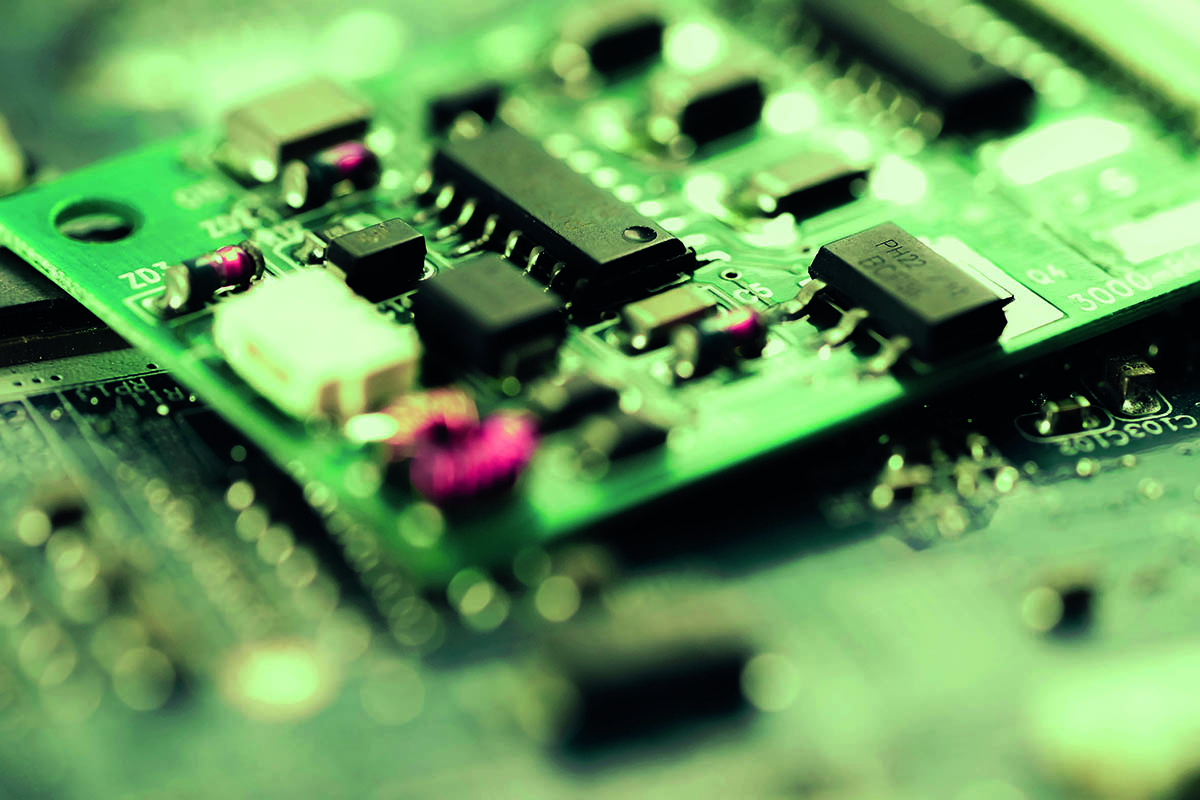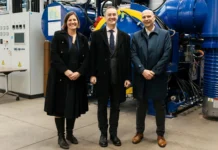
An EU project is attempting to lead the European electronics industry towards more sustainable materials, design, manufacturing methods, and improved circularity and energy efficiency, writes Finnish research group VTT.
The Sustronics project has a budget of EUR 40 million, with about a fourth coming directly from the EU (under KDT JU funding). Headed by Philips, the project aims to pioneer design, materials and manufacturing of devices that will comply with strict sustainability demands dictated by the goals of the Green Deal and help companies meet the requirements of upcoming EU legislation concerning sustainable products.
The 3-year project comprises nine pilots with the aim of redesigning existing devices or creating entirely new ones. A consortium of Finnish firms is among the line-up of contributors. Finnish technology research group VTT will develop sustainable materials and manufacturing processes for electronic products, as well as circularity enablers, namely smart tags as data carriers for digital product passports. In addition to VTT and the Finnish Tampere University, the project includes another six Finnish companies representing key steps in the value chain of sustainable electronics: Canatu, Movesense, Screentec, Tervakoski, UpCode, and UPM Raflatac.
According to the World Economic Forum, 53 million tonnes of electronic waste was discarded in 2019. This number is set to increase by 38% in less than ten years. The use of traditional materials for electronics is no longer viable due to their finite nature and the environmental damage caused by excessive e-waste. This calls for new materials and the uptake of circular principles by the electronics industry.
In early 2024, new legislation concerning sustainability requirements of products will go into effect, namely: Ecodesign for Sustainable Products. All products sold in the EU will be required to prove their sustainability credentials. The new legislation will impact both the European electronics industry as well as any company coming into the EU market.
“In the near future, companies and consumers will need to choose the sustainable route in the manufacturing and consumption of electronics. The fact is that the current mainstream materials used in consumer and enterprise electronics are finite – we will run out of them. We want to change the foundation of the industry so that sustainable materials and processes become the new normal for electronic products – without compromising the performance, and circulated products will be a mainstream option for consumers,” says Liisa Hakola, Senior Scientist and Senior Project Manager at VTT.
The ambition of Sustronics is to be the leading project that builds an ecosystem showcasing how the electronics industry can address its sustainability challenges. For example, due to rich natural resources, such as cellulose, and scientific expertise of multiple research and development organisations, Europe is a global leader in the field of bio-based materials. With participants representing, e.g., research hubs, material companies, device manufacturers, and electronic recycling, the Sustronics project will further strengthen the strategic autonomy of Europe as a leading, independent technology hub while addressing Green Deal objectives.
Canatu, a Finnish carbon nanomaterial developer, participates in a single-use diagnostic pilot which seeks to revolutionize home glucose metabolism testing by introducing an environmentally advanced solution.
“Carbon nanotubes have the potential to enable several cleantech solutions, offering higher performance and reduced carbon footprint. In the Sustronics project, our focus is to create a sustainable biosensor for C-peptide, which is a biomarker, e.g., for an early-stage diabetes diagnosis. Furthermore, the best practices of eco-design from this project could be applied to Canatu’s future product development,” says Ilkka Varjos, CTO at Canatu Oy.
As part of Sustronics, VTT participates in pilots aiming to make ECG patches, automotive dashboards and single-use diagnostics more sustainable. A pilot led by Finnish companies Screentec and MoveSense will develop an eco-friendly, wearable heart monitor with potential uses in healthcare and sports, enabling remote monitoring of the heart.“Screentec aims to expand its offering by adding more environmentally friendly alternatives, such as paper-based substrates as well as copper and carbon pastes, alongside the current used plastic substrates and silver pastes. The Finnish pilot included in the Sustronics project, and the participating partners will enable the development, testing and validating of these new material combinations and structures. We at Screentec feel it is a priority to improve the environmental sustainability of single-use medical electrodes. Our aim is to present and offer these new greener options to our current and future customers in the next few years,” says Mikko Paakkolanvaara, CTO at Screentec.
Philips, leader of the project, is confident in the project’s importance for the future of Europe’s electronics industry.
“Together with our partners in Sustronics – large companies, small-medium enterprises, and research institutes – key players in Europe, we can demonstrate that, following a sustainability approach, we can increase competitiveness, productivity, resource autonomy and environmental compatibility of the European Electronic Components and Systems (ECS) industry. This supports the renewal of the European ECS industry towards a circular economy, recyclable materials, and resource efficient manufacturing processes,” states Olga Kattan, Program Manager Public Private Partnerships at Philips Drachten.
Earlier this year, VTT announced the successful development of a sustainable ECG patch.
Senior Scientist and Senior Project Manager at VTT.
The ambition of Sustronics is to be the leading project that builds an ecosystem showcasing how the electronics industry can address its sustainability challenges. For example, due to rich natural resources, such as cellulose, and scientific expertise of multiple research and development organisations, Europe is a global leader in the field of bio-based materials. With participants representing, e.g., research hubs, material companies, device manufacturers, and electronic recycling, the Sustronics project will further strengthen the strategic autonomy of Europe as a leading, independent technology hub while addressing Green Deal objectives.
Canatu, a Finnish carbon nanomaterial developer, participates in a single-use diagnostic pilot which seeks to revolutionize home glucose metabolism testing by introducing an environmentally advanced solution.
“Carbon nanotubes have the potential to enable several cleantech solutions, offering higher performance and reduced carbon footprint. In the Sustronics project, our focus is to create a sustainable biosensor for C-peptide, which is a biomarker, e.g., for an early-stage diabetes diagnosis. Furthermore, the best practices of eco-design from this project could be applied to Canatu’s future product development,” says Ilkka Varjos, CTO at Canatu Oy.
As part of Sustronics, VTT participates in pilots aiming to make ECG patches, automotive dashboards and single-use diagnostics more sustainable. A pilot led by Finnish companies Screentec and MoveSense will develop an eco-friendly, wearable heart monitor with potential uses in healthcare and sports, enabling remote monitoring of the heart.
“Screentec aims to expand its offering by adding more environmentally friendly alternatives, such as paper-based substrates as well as copper and carbon pastes, alongside the current used plastic substrates and silver pastes. The Finnish pilot included in the Sustronics project, and the participating partners will enable the development, testing and validating of these new material combinations and structures. We at Screentec feel it is a priority to improve the environmental sustainability of single-use medical electrodes. Our aim is to present and offer these new greener options to our current and future customers in the next few years,” says Mikko Paakkolanvaara, CTO at Screentec.
Philips, leader of the project, is confident in the project’s importance for the future of Europe’s electronics industry.
“Together with our partners in Sustronics – large companies, small-medium enterprises, and research institutes – key players in Europe, we can demonstrate that, following a sustainability approach, we can increase competitiveness, productivity, resource autonomy and environmental compatibility of the European Electronic Components and Systems (ECS) industry. This supports the renewal of the European ECS industry towards a circular economy, recyclable materials, and resource efficient manufacturing processes,” states Olga Kattan, Program Manager Public Private Partnerships at Philips Drachten.
Earlier this year, VTT announced the successful development of a sustainable ECG patch.







